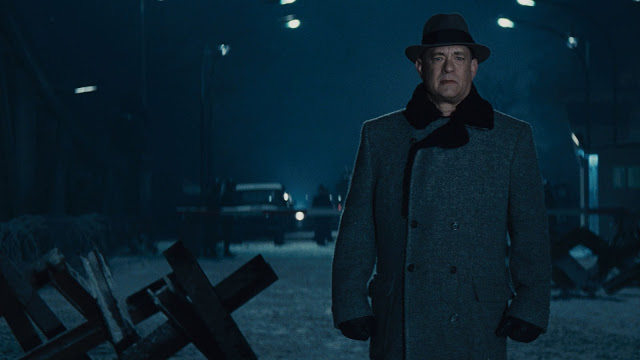Bridge of Spies: In This Cold War, It’s Chilliest Indoors
The protagonist of Bridge of Spies, Steven Spielberg’s sage, supremely enjoyable Cold War thriller, doesn’t much look like a hero. With his graying hair and natty wardrobe, his appearance suggests a man more comfortable on the golf course than the battlefield. He doesn’t act like a hero either, not in the strictest sense of action; he never picks up a gun, and he spends half the movie sniffling, complaining about his cold. “I just want to go home and go to bed,” he says, more than once. These are not words you expect to hear from the hero of a spy flick. But even if James B. Donovan is not the square-jawed archetype who anchors most war pictures, he is a profoundly heroic character, effortlessly earning your admiration even as he’s quietly lifting your spirits. And Bridge of Spies itself is a sly, delightful piece of Spielbergian misdirection. Through the careful application of his typical late-period formula—namely, the combination of superb technique and wistful patriotism—Spielberg makes you feel, watching this film, as though you’re bearing witness to something grand. The trick is that you are, even if you’re also just listening to people talk.
Talk was the name of the game in the Cold War, a decades-long battle of bluster and braggadocio. Bridge of Spies instantly plugs into that atmosphere of boiling tension—the sense of constant threat, followed by perpetual inaction—during its brilliant, wordless opening sequence. A Brooklyn man picks up a ringing phone, listens impassively, then heads to the subway. A pair of FBI agents (including The Wire‘s Domenick Lombardozzi) cautiously tail him, then lose him, and then, in their frantic search to relocate him, literally run smack into him on a staircase. That was close! But in addition to serving as a wry piece of anticlimax, this non-chase sets the stage for the mounting anxiousness and fakery to come. Read More

